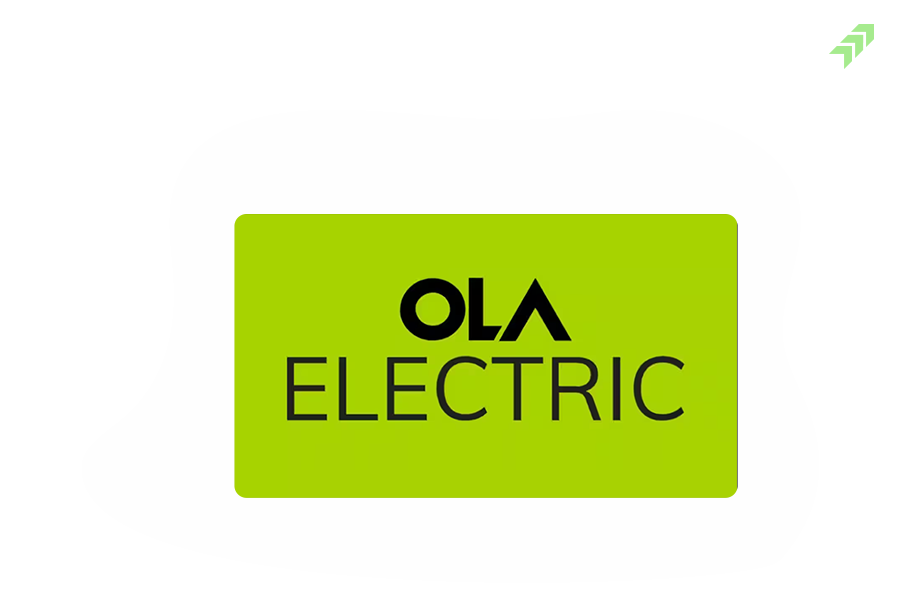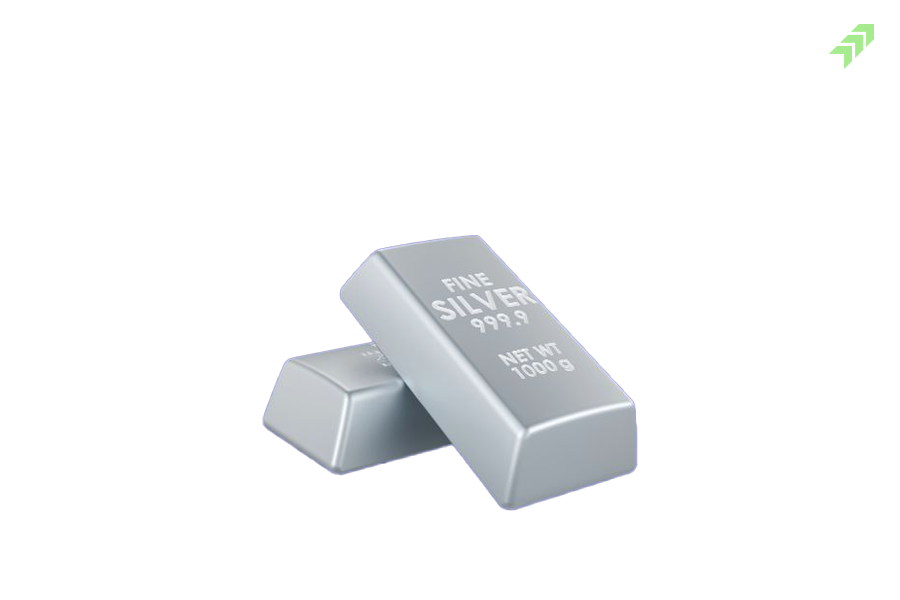Ola Electric Mobility Limited – About the Company
Ola Electric is one of the first of its kind of electric vehicles (EVs) in the two-wheeler segment maker is now involved in manufacturing the EVs and core EV components, including cells. Apart from producing two-wheeler EVs, it is also producing certain core EV components like making battery packs and motors at Ola Future factory, at its manufacturing facility.
The company has vertically integrated technologies and manufacturing capabilities to operate on three key scalable platforms. First, R&D and technology platform with in-house design and development across EV technologies and components. The second one is an adaptable manufacturing and supply chain platform, and the third one is a D2C omnichannel distribution platform that comprises 935 experience centres located across India of which 414 are service centres.
In August 2021, Ola Electric introduced its first EV model – the S1 Pro and now it has a product portfolio of five EV scooter models with different price ranges. And within nine months of the launch of its first EV scooter, Ola Electric has become the best-selling E2W player in India. As of June 2023, it has a 31% market share in electric two-wheelers and further aims to explore exporting EVs to specific international markets and become the leading player in EVs.
Its Ola Future factory manufacturing unit is the largest integrated and automated E2W manufacturing plant in India (in terms of production capacity) by an E2W-only OEM, as of September 30, 2023, and at this unit, the company is producing EV scooters using certain EV components manufactured in-house and other components procured from third parties, such as cells.
Apart from that, the company is also operating a BIC in Bengaluru, India that is mainly focused on developing the cell and battery technology and manufacturing processes for its forthcoming cell manufacturing at the Ola Gigafactory.
Ola Electric IPO Objectives
As per the filed draft red herring prospectus (DRHP) document, the company is looking to raise Rs 5500 crore through a fresh issue of shares. As per the latest financial reporting, Ola Electric has total borrowings or debt of Rs1,617 crore in FY24.
Also Read: What is DRHP in IPO: How to Read & Difference between DRHP and RHP
Hence, one of the main objectives of Ola Electric’s IPO is to raise funds from proceeds to reduce its debts and repay loans owed by subsidiaries from banks. However, part of the issue will also be used for capex expenditure and various other purposes.
As per the offer document, out of the total fund raised by fresh issuing of shares through the IPO, Rs 1,600 crore will be used for research and development (R&D) investments and Rs1,226.4 crore for Ola Cell Technologies’ Gigafactory project.
While Rs 800 crore will be to repay the debts of Ola Electric Technologies (OET) and Rs 350 crore will be used for the organic growth initiatives and meet the other fund requirements of the company like general corporate purposes.
Ola Electric IPO Details:
| IPO Open Date | August 2, 2024 |
| IPO Close Date | August 6, 2024 |
| Basis of Allotment | August 7, 2024 |
| Listing Date | August 9, 2024 |
| Face Value | ₹10 per share |
| Price | ₹72 to ₹76 per share |
| Lot Size | 195 Shares |
| Total Issue Size | 808,626,207 shares |
| (aggregating up to ₹6,145.56 Cr) | |
| Fresh Issue | 723,684,210 shares |
| (aggregating up to ₹5,500.00 Cr) | |
| Offer For Sale | 84,941,997 shares of ₹10 |
| (aggregating up to ₹645.56 Cr) | |
| Issue Type | Book Built Issue IPO |
| Listing At | BSE & NSE |
| QIB Shares Offered | Not more than 75% of the Net Issue |
| Retail Shares Offered | Not more than 10% of the Net Issue |
| NII (HNI) Shares Offered | Not less than 15% of the Net Issue |
Source: DRHP
Ola Electric IPO Issue Price & Size
The issue price of Ola Electric is between the price ranges of Rs. 72 to Rs. 76. The investors can bid between these price ranges during the open and close date of Ola Electric’s IPO. As per the DRHP offer document, Ola Electric IPO will issue a fresh issue of equity shares of up to Rs 5,500 crore and an offer-for-sale (OFS) of more than 84,941,997 equity at a face value of Rs 10.
Ola Electric IPO Launch Date
Though the launch date of the Ola Electric IPO is not yet announced officially by the company, as per the various sources, the IPO is likely to be launched in January 2024. However, The Ola Electric IPO will be open on August 2, 2024 and will close on August 6, 2024. All types of investors can bid for the IPO between these dates.
Ola Electric Financial Statements:
| Particulars (Rs in Million) | FY24 (3M) | FY23 | FY22 | FY21 | CAGR |
| Revenue from Operations | 12,427.46 | 26,309.27 | 3,734.23 | 8.64 | 5418.20% |
| Other Income | 359.29 | 1517.7 | 828.37 | 1052.17 | |
| Total Income | 12,786.75 | 27,826.97 | 4,562.60 | 1,060.81 | 412.17% |
| Operational Expenses | 12038.75 | 29971.34 | 7633.80 | 1972.51 | |
| Other expenses | 2568.40 | 8862.41 | 4104.32 | 876.52 | |
| EBITDA | (1820.40) | (11006.78) | (7175.52) | (1788.22) | 148.10% |
| EBITDA Margin% | -14.65% | -41.84% | -192.16% | -20696.99% | |
| Depreciation | 474.15 | 1670.64 | 489.80 | 196.20 | |
| Interest | 359.30 | 1079.17 | 176.18 | 7.90 | |
| Loss Before Tax | (2653.85) | (13756.59) | (7841.50) | (1992.32) | |
| Total tax | 0.00 | 0.00 | 0.00 | 0.00 | |
| PAT | (2653.85) | (13756.59) | (7841.50) | (1992.32) | 162.77% |
| PAT Margin% | -21.35% | -52.29% | -209.99% | -23059.26% | |
| EPS Basic (Rs) | (0.71) | (3.91) | (2.23) | (0.59) |
Ola Electric Financial Performance
Ola Electric started its operations in 2021, and in FY21 company reported revenue of only Rs86.4 lakhs, but thanks to exceptional growth due to strong demand for its products in the market, the company achieved a revenue of Rs 2630.93 crore in FY23. In the first three months of FY24, the revenue of the company touched to Rs 1242.74 crore.
However, due to high operating costs, the company has been incurring operating losses since FY21. In full-year FY21 the EBIDTA was in negative of Rs 178.82 crore and further increased with higher sales and widened to Rs 1100.68 crore in FY23. In the first quarter of FY24, the EBIDTA was again negative Rs 182.04 crore but during the same period for the first time company reported an operating profit of Rs 38.87 crore showing improved operating margins.
And further because of additional expenses like depreciation and interest cost, the company has registered a net loss of Rs 1375.66 crore in FY23, that loss was much lesser at Rs 199.23 crore in FY21 due to lower sales in the same period. However, the loss of the first three months of FY24 is Rs 265.38 crore due to better operating margins.
Ola Electric IPO Promoters & Shareholding of the Company
Bhavish Aggarwal is the main promoter of Ola Electric Mobility Limited holding a 36.94% stake in the company. He is also the founder and chief executive officer of the company and will be offloading 4.7 Cr equity shares through this IPO (50% of the total OFS).
Other members of the promoter’s group are ANI Technologies Private Limited and Indus Trust which hold 4.35% and 3.85% stakes respectively in the company. Similarly, there are other shareholders and investors in the company selling their holdings. And to know about other investors and selling shareholders’ details check the table given below.
| S.No. | Name of the Shareholder | No. of Equity Shares held | % of pre-Offer Shareholding |
| Promoter (Also Selling Shareholders) | |||
| 1 | Bhavish Aggarwal | 1,361,875,240 | 36.94% |
| Total (A) | 1,361,875,240 | 36.94% | |
| Promoter Group | |||
| 1 | ANI Technologies Private Limited | 160,413,177 | 4.35% |
| 2 | Indus Trust (also the Promoter Group Selling Shareholder) |
141,959,272 | 3.85% |
| 3 | Naresh Kumar Aggarwal | 165,669 | Negligible |
| Total (B) | 302,538,118 | 8.20% | |
| Investor Selling Shareholders | |||
| 1 | Ab Initio Capital, L.P | 10,037,028 | 0.27% |
| 2 | Alpha Wave Ventures II, LP | 128,503,423 | 3.49% |
| 3 | Alpine Opportunity Fund VI, L.P. | 21,412,329 | 0.58% |
| 4 | Ashna Advisors LLP | 601,828 | 0.02% |
| 5 | Barry S. Sternlicht | 17,479,629 | 0.47% |
| 6 | DIG Investment IV AB | 35,018,499 | 0.95% |
| 7 | Internet Fund III Pte Ltd | 222,436,381 | 6.03% |
| 8 | MacRitchie Investments Pte. Ltd. | 46,028,218 | 1.25% |
| 9 | Matrix Partners India III AIF Trust | 3,023,308 | 0.08% |
| 10 | Matrix Partners India Investments III, LLC | 126,623,262 | 3.43% |
| 11 | Nuvama Private Investments Trust Nuvama Crossover Opportunities Fund – Series III | 12,168,907 | 0.33% |
| 12 | Nuvama Private Investments Trust Nuvama Crossover Opportunities Fund – Series III A | 9,464,591 | 0.26% |
| 13 | Nuvama Private Investments Trust Nuvama Crossover Opportunities Fund – Series III B | 9,465,448 | 0.26% |
| 14 | Sarin Family India LLC | 8,714,241 | 0.24% |
| 15 | SVF II Ostrich (DE) LLC | 810,424,447 | 21.98% |
| 16 | Tekne Private Ventures XV, Ltd | 36,319,597 | 0.99% |
| Total (C) | 1,497,721,136 | 40.63% | |
| Grand Total (A+B+ C) | 3,162,134,494 | 85.77% |
Source: DRHP
Other than the promoter, Japanese tech investor SoftBank which acquired a stake for INR 50.94 apiece in the company will offload 2.38 Cr shares in the IPO. While, Promoter group Indus Trust will sell another 41.7 Lakh shares and Alpha Ventures and Tiger Global’s Internet Fund III will offload 37.82 Lakh and 63.6 Lakh shares, respectively through OFS in the IPO.
Similarly, another investor Matrix Partners India will sell 37.27 Lakh shares and Tekne Capital will offload 9.75 Lakh shares in Ola Electric.
Why Invest in Ola Electric IPO?
Just like investing in other companies, while investing in Ola Electric IPO you need to consider various factors, that will help you know its strength, weakness and growth potential of company with the risks that it can face while operating its business.
Also Read: What to Know Before Investing in Stocks: 10 Things to Consider
Simply perform the fundamental analysis, to analyse the various factors like industry overview, company market share, its future growth plans and how it will boost its sales and enhance the valuation of the company’s market value and its shareholders.
Also Read: Difference Between Fundamental Analysis and Technical Analysis
You also need to analyse the risk factors that can affect its business operations and revenue growth or various other challenges that can affect its business strategies. In respect of the same, we brought here and highlighted the strengths and risk factors that are listed below. While investing in the Ola Electric IPO, you can consider all these factors.
Also Read: What to Check Before Buying IPO: Things to Know & Is it Safe
Competitive Strengths:
- With the Innovation in cell technology & the subsequent rise of EVs, increased adoption of software & electronics in vehicles, and the government’s impetus to domestic manufacturing of technologically advanced vehicles, India’s automotive market is undergoing a technology-led transformation, unlocking the next wave of growth for the leading players in the sector.
- Ola Electric is Pure EV player with a leadership position in the fast-growing Indian E2W market E2W penetration in India is expected to expand from approximately 4.5% of domestic 2W registrations sales reported on the VAHAN portal in Fiscal 2023 to 41-56% of the domestic 2W sales volume by Fiscal 2028.
- Ola Electric is the market leader among Indian electric 2-wheelers (E2Ws) and original equipment manufacturers (OEMs) in terms of revenue from E2W sales in FY23. In November 2023 the company recorded its highest-ever sales of 30,000 units, giving it a market share of 35% in the EV segment and one of the leading players in the industry.
- Further as per the documents, the company has targeted to sell 900,000 units in 2024-25 and 2.3 million units in 2025-26. However, these targets are 60% and 21% lower than earlier estimates when incentives were in place.
- Ola Electric is a pure EV company working with R&D and technology including in-house design, engineering, and manufacturing that all are mainly focused on designing and developing new EV products and core EV components, such as battery packs, motors and vehicle frames.
- The main manufacturing unit of the company, Ola Future factory is the largest integrated and automated E2W manufacturing plant in India (in terms of production capacity) by an E2W-only OEM. Ola Future factory is operating with capabilities to manufacture at scale, automation, and flexible lines also enabling the company to improve cost efficiency across value chains through economies of scale in its supply chain, fast component development and cross-utilization of equipment across products.
- The company is selling its EV products through a direct-to-customer omnichannel distribution model, enabling the company to directly engage with customers and collect customer feedback, to consider the same while developing its products and product upgrades to ensure they are responsive to customer preferences.
- Being part of developing eco-friendly products for the Indian market, Ola Electric is also enjoying the advantages of various benefits and schemes especially offered by the Central Government to the EV manufacturers in India. The company is eligible to receive the incentives under the Cell PLI Scheme over five years from the commissioning date of our Ola Gigafactory.
- As a part of its enhancing the technological developments of its R&D centres, the company will continue to invest in R&D to advance its technological capabilities and optimize costs. This will improve the product offerings, adapt to changing consumer preferences and improve the cost and operational efficiency of the company.
- The company intends to invest in flexible assembly lines at Ola Future factory which can adapt to the production of different EV models. It might also enter into arrangements, including alliances for the supply of certain raw materials and EV components and continue optimizing its operational cost through the end-to-end streamlined manufacturing processes and in-house design and engineering initiatives.
- Though, the company is currently sourcing its battery cell requirements from third-party suppliers, but looking to develop its cell technology and strengthen its in-house manufacturing capabilities, which will have greater control over the supply chain and costs of the company.
- To itself competitive in the 2-wheeler EV market, the company will strategically launch products across premium and mass-market categories, enabling the company to target and capture a broader base of consumers across different product types and price points.
- Apart from producing the new range of EV scoters, in the near-term, the company is also aiming to further expand the network of experience centres, service centres and charging stations across rural and urban areas in India. This will not only provide added convenience to the customers in charging their EV scooters but also help the company deepen its penetration within India.
- Further to enhance its production capacity, the company is in the process of building a new EV hub in the Krishnagiri and Dharmapuri districts, Tamil Nadu. That includes the Ola Future factory and the upcoming Ola Giga factory co-located suppliers in the Krishnagiri district.
Also Read: What are the Risk Factors Involved in Applying for an IPO
Risks Factors:
- One of the most important risk factors of Ola Electric is the reduction or elimination of FAME or Faster Adoption and Manufacturing of Electric subsidies. That benefits the company under the production-linked incentive scheme for the Automobile and Auto Component Industry, the PLI Scheme for the National Programme on Advanced Chemistry Cell Battery Storage subsidies from the government of Tamil Nadu, and goods and services tax concessions available to its customers. Hence, the ineligibility of any of its electric vehicles (EVs) for such a subsidy would increase the purchase cost of the EVs will adversely affect customer demand for the EVs in the country.
- Another internal risk the company is facing is that Bhavish Aggarwal was the Founder, Promoter, Chairman and Managing Director of Ola Electric and has a concentration on multiple other businesses. He is also the Chairman and Managing Director of ANI Technologies Private Limited and has recently founded a new startup and also a shareholder of Tork Motors Private Limited which is involved in the same line of business as that of Ola Electric. Hence his involvement in other similar businesses may detract from the time that he can dedicate to Ola Electric and also create a conflict of interest and resolution resulting there might have adversely affected the business operations and revenue growth of Ola Electric.
- To reduction of the subsidy by the government will also increase the price of all the models of Ola Electric resulting, in the company facing a decline of orders by 58% in June 2023 from May 2023. Similarly, and inadequate access to public charging infrastructure may also adversely affect electric vehicle demand in the Indian market.
- Further, defects and quality issues can also impact the company’s manufacturing timelines. And company can face in-house cell manufacturing capabilities or any kind of disruptions in the supply chain can lead to increased material costs, impacting manufacturing and delivery timelines.
- Unfavourable regulatory policies and compliance with motor vehicle standards set by the Automotive Research Association of India are crucial factors for the company, thus any changes or failure to satisfy these standards could adversely affect the business and revenue of the company.
- Further targeting the overseas market, the international operations also pose risks due to unfavourable regulatory policies, political unrest, currency, tax, and labour conditions, harming the business, prospects, and financial condition of the company.
- The company works on an internet-led distribution model that is quite different from traditional showroom distribution of automobile models. This could be another challenging factor for the company to evaluate Ola Electric’s business, operating results, and future prospects.
- Lithium-ion cells are used in Ola Electric, EV vehicles that pose another risk of catching fires or smoke, potentially harming the brand image of the company and can adversely affect the company’s business.
- Apart from that, technology is another critical factor for the operations and growth of the company. Any failure, defective designs, technical glitches, bugs, or vulnerabilities can cause production delays and also can harm business operations, the reputation of the company and its growth prospects.
- A discouraging financial performance is one of the most prominent key risk factors of Ola Electric. As per the DRHP, it has a limited operating history and has incurred losses and negative cash flows from operations. It adds that it may continue to incur losses and is not likely to become a profitable company in the near term.
- On the legal front, the company is under the scanner of the Enforcement Directorate (ED), wherein its promoter was issued a summons under Section 50 of the Prevention of Money Laundering Act, 2002. And related to an FIR filed by a firm called Lahari Recording Company against ANI Technologies Promoter Bhavish Aggarwal and Ankit Bhati, co-founder of Ola who has left the firm to start his venture.
- Further, the company has around 189 pending legal proceedings on various consumer dispute redressal commissions involving an aggregate claim amount of Rs 4 crore. The delay in solving such issues will have a negative impact on the brand image and reputation of the company.
Ola Electric IPO Grey Market Premium (GMP)
The Grey Market Premium or GMP is the pre-defined price of an unlisted company that has launched the IPO with an issue price and is likely to list on the stock exchanges. The GMP is the premium price over the issue price in IPO, and it is determined by the speculators in the grey market depending on the demand and supply of the shares in the grey market.
Also Read: What is Grey Market Premium in IPO: How is GMP Calculated &Reliable
As the issue price of the Ola Electric IPO has not been disclosed or declared by the company, the GMP is also not identifiable in the grey market. However, The GMP is not a reliable factor in deciding the expected listing price of any unlisted company, but it can give an idea of its share price, at that price it is going to trade around in the secondary market. The grey market premium as of July 29 was trading at Rs, 15.
Ola Electric IPO Review & Analysis
Analyzing the company from the financial performance point of view is not fair right now, as the company is running into a loss and is likely to continue to incur losses further due to high operating costs like an increase in workforce and a rise in employee salaries.
Evaluating the company and comparing the same with its listed peers on the basis of its net earnings per share is not possible due to losses. However, in the last three years company has managed to improve well and reduce its operating and net loss margins. With the economies of scale due to increasing demand from the customers, the company is likely to boost its sales which will help it to reduce its losses and improve the operating margins.
However, if the Ola Electric IPO comes with a very high price, you can avoid applying to the issue or invest only in the company with long-term investment prospects. If the share price of Ola Electric in IPO is issued at a discounted price, then you can consider the same to apply in the IPO with the listing gains as well as the medium to long-term outlook.
Also Read: Types of Risks Associated with Investing in the Stock Market
How to Apply for Ola Electric IPO?
To apply in the Ola Electric IPO or any other company’s IPO or if you are looking to invest in the stock market, you need a trading account and a demat account. You have to open both these accounts with the SEBI and stock exchanges registered brokers to apply for the IPO or buy or sell in the stock market. Right now if you don’t have these accounts, just apply here at Moneysukh, to open both these accounts and apply in the IPO or perform the online trading.
Also Read: Benefits of Investing in the Stock Market: Advantages of Share Market
Having a trading and demat account with Moneysukh, you will get a world-class facility with best trading platform at the best discount brokers in India for trading or investing in equities, commodities and currencies at the lowest brokerage and best pricing in the industry. To apply for the Ola Electric IPO through Moneysukh just follow the steps given below.
Also Read: Equity or Commodity which is better for Trading or more Profitable
Steps to Apply for Ola Electric IPO:
Step 1: When Ola Electric IPO opens, only then you can apply for the bidding.
Step 2:Open trade.moneysukh.com in your browser and log in with your User ID & password.
Step 3:Now you need to navigate to the IPO section and click on the Ola Electric IPO.
Step 4:Further you need to fill in the various details like price, quantity, and so on.
Note: Always make sure always bid at the cutoff price while applying and submitting your application in the IPO.
Step 5: Now make the required payment amount before submitting your IPO application successfully.
How to Check Ola Electric IPO Allotment Status?
The basis of the allotment process in the IPO starts after few days after the last bidding date. Depending on the IPO subscription status, a company organises the allotment procedure. If an IPO is oversubscribed many times, most companies follow the lottery system to organize the allotment process. Hence, the chances of getting the allotment of shares become very low for each individual investor when the entire IPO issue is oversubscribed into multiple folds.
Also Read: How to check IPO allotment status on NSE, BSE through Moneysukh
IPO allotment for retail and IPO in the HNI category or any other category all are done as per the quota decided for the different types of investors. Hence, you need to follow certain tips while investing in IPOs to improve your chances of allotment of shares.
Also Read: How to Increase the Chances of IPO Allotment
However, when an investor doesn’t get any shares in the allotment then, the IPO application money will be refunded into the bank account or the fund will be unblocked if you have applied into the IPO through an ASBA UPI-based online payment system.
If you are the lucky one and managed to get the allocation of shares during the allotment the number of shares allocated to you will be transferred into your demat account before the date of listing. You sell the shares to book profits or further keep them in your portfolio with the intention to get long-term gain from an increase in the value of the share.
Also Read: What is Profit Booking in Stock Market: Rules & Best Strategy



















No comment yet, add your voice below!